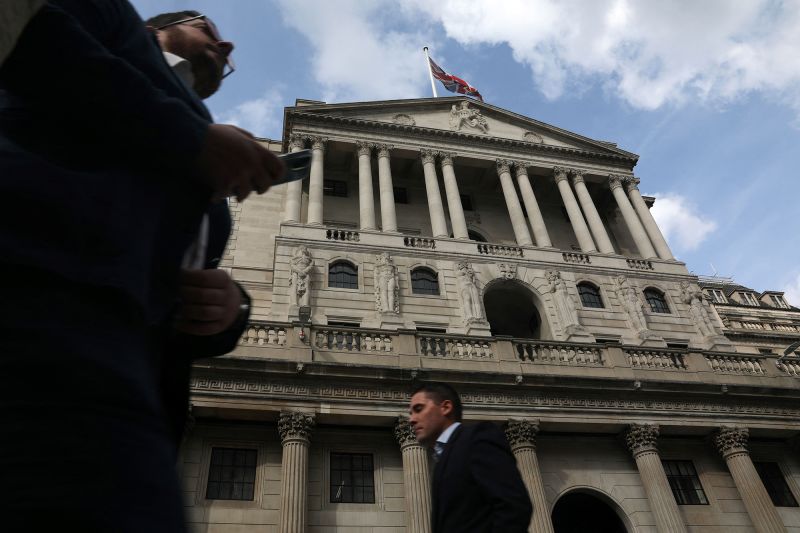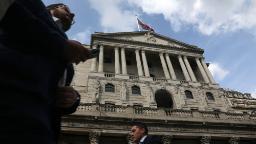

London
CNN Business
—
UK policymakers are trying to calm markets after a plan by Prime Minister Liz Truss to cut taxes while ramping up borrowing sparked panic among investors worried it could feed inflation and destabilize government finances.
The Bank of England said Monday that it is “monitoring developments in financial markets very closely in light of the significant repricing of financial assets.”
It said it would look into the effects of the government’s plans on inflation at its next scheduled meeting in November, and would “not hesitate to change interest rates as necessary.”
The bank issued its comments shortly after the UK Treasury said that Kwasi Kwarteng, the country’s finance minister, would outline plans to ensure the sustainability of UK debt over the medium term on November 23. The country’s budget watchdog has also been instructed to release an updated forecast at that time.
The UK pound has plunged and government bonds have collapsed since Truss and Kwarteng revealed their economic program on Friday. It’s intended to spur economic growth, but has fed alarm among investors, who are worried about the unorthodox approach.
While the Truss government wants to boost demand to take the edge off a recession this winter, the Bank of England is trying to cool the economy so it can put a lid on the fastest price increases among G7 countries.
That tension, along with concerns about tens of billions of dollars in fresh borrowing, drove the pound to a record low against the US dollar on Monday and has triggered a dramatic sell-off in UK government bonds, which could only make the Bank of England’s inflation challenge more difficult to control.
“It remains to be seen whether today’s statement by the government and the Bank of England will be enough to ease the markets’ fears about the government’s fiscal policy,” said Paul Dales, chief UK economist at Capital Economics.
“The initial reaction in the markets, with the pound falling again after it regained some ground, suggests that the issue may not be put to bed yet.”
